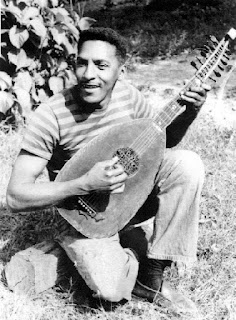 |
| With Christian Estevez, Executive V-P and Chair of Education Committee of LAN |
Please read this press release from the Latino Action Network, which includes its policy statement on the "Opportunity Scholarship Act." It is important that we all remain aware of the continuing efforts toward corporatization of our public school system. Yes, the system certainly needs improvement, especially in terms of providing an adequate education for children of color (who, in the main, live in poor districts), but this scheme simply seems to divert funds in a way that benefits corporate interests and not the children. Labor leader Christian Estevez, who serves as the Executive Vice-President and Education Committee Chair of the Latino Action Network, also provides some additional thoughts on this legislation. The press release is reproduced in its entirety below:
Latino Action Network Announces Opposition to Opportunity Scholarship Act
For Immediate Release: December 5, 2011
Christian Estevez, Chair, Education Committee – 973-418-7012
Daniel Santo Pietro, Chair, Public Policy Committee – 732-496-9628
Estevez concluded: “This is an educational gimmick of the worst sort. This legislation does nothing to address the core issues of housing and educational segregation. We pledge to work with legislators to address the real issues that hurt so many children of low and moderate-income families.” Below is the official policy statement of the Latino Action Network with regards to the Opportunity Scholarship Act:
The Latino Action Network opposes the publicly funded voucher bill known as the ‘Opportunity Scholarship Act’. This voucher law would provide corporations a 100% tax credit for contributions made to a state run voucher program, which would then distribute the funds. This legislation would divert from $360 million to over $1 billion in tax dollars away from the public education system to private and religious schools.
The Opportunity Scholarship Act, as written, diverts tax dollars already owed to the state of New Jersey without requiring any additional contribution from corporations. Participating corporations will be given bragging rights for providing ‘scholarships’ without making any sacrifice on their part.
The Latino Action Network believes that it is fiscally irresponsible to divert up to one billion dollars from struggling schools in order to pay for a voucher program that has failed to improve the academic achievement of students using them in other states. Furthermore, providing vouchers to a small group of students does nothing to address the underlying conditions that cause schools to struggle in the first place. The vast majority of students in communities with high concentrations of poverty would still be trapped in struggling schools.
There is clear agreement from both sides of this debate that the vast majority of poor children of color in New Jersey are confined to the state’s lowest performing schools based solely on the zip code in which they reside. The members of the Latino Action Network believe that we must do everything we can to end the practice of educational and housing segregation in our state. In the meantime, we must provide immediate relief to as many students as we can. The Opportunity Scholarship Act does not provide that relief.
Private and religious schools have no requirement to prove that public money spent in their institutions will be used to improve students' academic experiences or achievements. These schools are not held to the same level of standards or accountability as public schools. At a time when our schools need more efficiency and effectiveness, this legislation will lead to less accountability. It is incongruous for Gov. Christie to both say that schools should be measured based on results and to push the Opportunity Scholarship Act which has neither proven effective in increasing results nor requires better results.
There are many ways the state can increase access to excellent public schools for children who live in high poverty areas. These options include the expansion of models like magnet schools, charter schools, and the Interdistrict School Choice Program which enables all students to attend a public school outside their district of residence without any additional cost to their parents or to taxpayers.
The Latino Action Network stands willing and ready to work with lawmakers to develop a comprehensive plan that improves the public education system for the benefit of all New Jersey. We believe that New Jersey should strive to provide the comprehensive and equitable education which our state constitution requires and all of our children deserve.



























